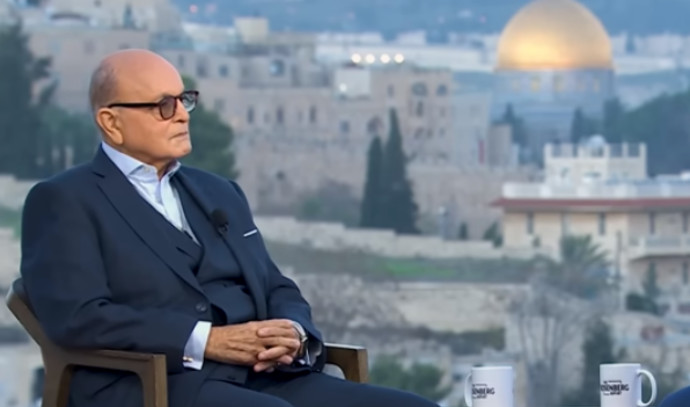A former member of the Fatah terrorist organization, who converted to Christianity in the early 1990s, claimed that a considerable number of Gaza’s Muslims were likely to abandon Islam as a result of the crisis. the Israel-Hamas wargravitating towards Christianity.
Speaking to Joel Rosenberg about the latest episode of the “Rosenberg Report,” airing on Trinity Broadcasting Network (TBN) this weekend, Taysir “Tass” Abu Saada said he predicts that many Gazans will feel so hopeless, lost and lied to by Hamas after the war that they they will abandon Islam and the extremism of Hamas for the teachings of the Bible.
“Hamas is an ideology which is prevalent among many people, not only in the Gaza Strip but all over the world,” Saada told Rosenberg. “However, God has a plan. And I believe that the plan of the Arabs and the Jews is also part of it, and therein lies my hope.
“This is why I am back in the Holy Land, to settle in the Gaza Strip and participate in the reconstruction,” Saada continued. “I believe that with all the destruction, with everything that has happened, with the difficulties that the Palestinians have gone through, they cannot sit idly by and ask themselves: ‘Why?’
“God is going to do a lot of work (in Gaza) and I want to be a part of it.”
“The harvest will be enormous”
Saada said he already has a team on the ground caring for Gazans during the war, and these individuals tell him that “the harvest is going to be huge.”
Saada was born in Gaza in 1951. He moved with his family to Saudi Arabia and Qatar at a young age. According to testimony he provided to jewishroots.netIn the 1970s, Saada became a supporter of Yasser Arafat, eventually fleeing his family to join the Fatah terrorist organization.
“After the Six Day War“I felt like I was having a nervous breakdown and my hatred only grew,” he said in his testimony. I didn’t understand how we could lose so many wars against Israel; we were bigger than Israel in number and size, we had more equipment – everything we had was more than them, but we still lost the wars against them.
“I thought that once again our leaders had sold us out to the Jews,” he continued. “That’s when I decided to go and fight for our land, which I believe was ours.”
His parents did not allow him to leave school. So he ran away. It took his parents several years to find him. When they did, he was forced to return to Qatar. A series of violent incidents in the country have landed him in legal trouble. Eventually, Saada was sent to America. He slowly integrated, found an American wife and eventually met a Christian who helped him convert.
This Christian told him that “if you want to have the peace of mind that I have, you have to love Jews,” Saada recalled in his testimony, “I completely froze and asked him how he could even to think of such a thing – to love Jews? He knew I hated them. For me, as for most Arabs, a good Jew was a dead Jew.
But that night, he and his Christian mentor read the Bible. The next day, Saada felt the need to pray. “The first people I wanted to pray for were the Jewish people,” he told jewishroots.net. “I prayed, ‘Oh, God, bless your people Israel. God, then gather you to the Promised Land.’
Soon he learned that his son had also converted. Eventually his wife also discovered Christianity. Together, they launched an evangelical ministry for mulisms called Hope for Ishmael and a humanitarian organization called Seeds of Hope, which operates in the Middle East.
“What we are seeing today is really one of the signs of the end times because it is not normal, the destruction that is taking place,” Saada said in his interview with Rosenberg, “first by the evil hand of Hamas that attacks Israelis. in a radical and very perverse way. Naturally, Israel had to react and defend itself.
“We can plant a seed in the hearts of the younger generation”
He nevertheless said that Israel’s response led to the deaths of too many Gazan civilians.
In Saada’s vision, the solution is a two-state solution in which Palestinians continue to live in Gaza, but Israel gains oversight and authority over the West Bank. He told Rosenberg that Palestinians would first go through a period of integration and eventually become citizens of the State of Israel.
He said: “We can plant a seed in the hearts of the younger generation, putting hope in the hearts of Israelis and Palestinians, seeing that there is a way, that there is an idea that we can live together in one state, Israel. with the West Bank.”


